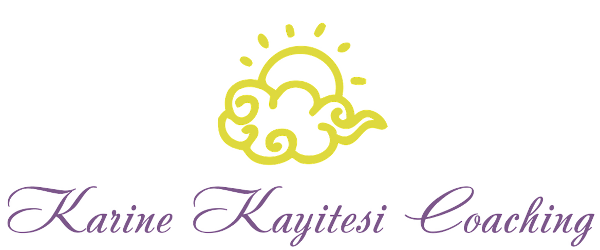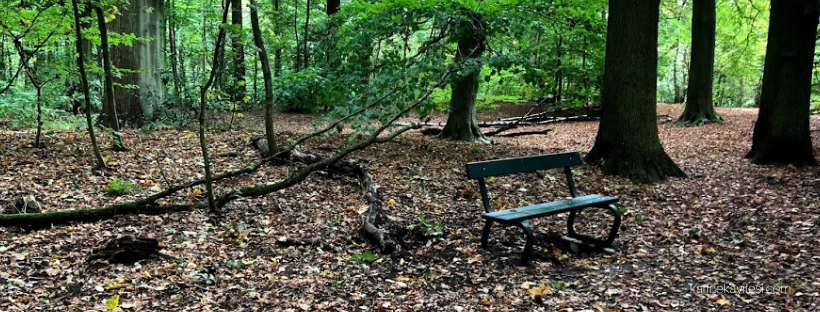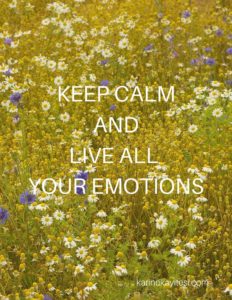5 Ancient Ways to Handle Melancholy, Sadness, Grief
Feeling melancholic, sad, nostalgic? Melancholy, sadness and grief are often considered negative emotions.
Harmful positivity
Modern life would have us believe it is all about positivity and feeling joyful 100% of the time.
Not only is it a big misperception but it can also prove to be a genuine health hazard. Forcing feelings of joy and happiness can have a detrimental effect on your overall mental and physical health.
Watch this short video as an introduction : Melancholy, Video by the School of Life
Seasons and Emotions
Nature
In Traditional Chinese Medicine, the human body is part of nature and it functions according to its rules. As a result, the human body is closely connected to seasons.
Nature is what we are, and what we are evolving in, it is more intelligent than we, human beings, can ever be, yet we are desperately trying to master and use it rather than live in alignment with it. We strive to understand it from a brain perspective. Yet we are failing to comprehend it from within, to grasp that we are one with it. We are activated by the same phenomena, we are not separate from it. This awareness would allow us to trust its power and follow its natural laws.
According to Chinese Medicine, Autumn is the season when human beings are the most likely to feel melancholic or sad.
The weather gets cold, trees start to lose their leaves and become more vulnerable, the general energy observed in nature is one that goes inwards (yin). It is one that is more ‘introverted’ (If you are interested in getting more insights on the energy that is associated with Autumn, I would suggest you read this previous post: Standstill and Autumn.).
The emotions linked to Autumn are deep rather than superficial.
If you are feeling like some deep rooted emotions are resurfacing at the moment, don’t panic, there is a meaning beyond this, and there is no reason why you should try to feel differently.
Melancholy
What the Portuguese call ‘Saudade’ is a kind of bitter sweet nostalgia one can feel when far from a loved one for instance, or a loved country (if you are an expatriate or a repatriate you can certainly feel this at times). It is a mixture of warmth at the recollection of nice memories and frustration and longing linked to the desire of reliving what now belongs to the past. Singer Cesaria Evora captures it beautifully in her tune ‘Saudade’, check it out.
Emotions like regret, sorrow, pain, nostalgia, sadness, despair, are there to be experienced, and only then, can they be released. Only then can you can come back to the present moment and enjoy every minute of it. No emotion should be labelled shameful.
Your body is Your Guide
If you don’t feel your emotions when they occur, they will keep putting pressure on you and will create havoc in your life in a more insidious and lasting way.
However, feeling your emotions when they occur does not mean dwelling on them, it means 1- feeling, 2- releasing, 3- moving on.
Our body has numerous ways of showing us when we need to stop and listen to it. And the more we ignore the signs, the higher the consequences.
Somehow, burn out is a result of postponing listening to the signs our body has tried to send along the way. It is a vicious circle in which the mind keeps instructing the body to keep going. The body is very obedient and completes all the tasks it is ordered to do, until comes a time when things go wrong. Fatigue, aches, pains, migraines, foggy mind… the body tries to send signals, but these signals are not acknowledged. In the end the body breaks down and the mind along with it. This can have long term health consequences (for more on burn out read: Why self care is not just about Bubbles Baths and Massages).
Grief and Loss
The 5 Stages
Experiencing grief and loss brings out difficult emotions, which, if not lived and processed, will have a damaging impact on our mental health. Dr Elisabeth Kubler-Ross found out that going through Grief and Loss involved experiencing 5 universal stages. All of these stages can be lived differently by various different people and in a different order. These stages are denial and isolation, anger, bargaining, depression and acceptance.
One can think denial goes against feeling the pain and being better able to move on. However, denial is healthy too, as long as we don’t force denial over other feelings which are ready to emerge and help us move forward. A good analogy would be putting a book on a shelf, knowing it’s there, until we are ready to open and revisit it. For example, one can be on denial mode and act as if nothing has happened, go on with life and practical issues, but there comes a time when other feelings such as pain, regret, sorrow come to the surface. It is a sign that it is time to pay attention to them. Everything in due time.
Losing someone dear is a very difficult life experience. It can be particularly sharp and unsettling for internationals who are likely to feel even more uprooted, isolated, disconnected and lonely at such times of deep distress.
Death of a loved one, or the prospect of one’s own death, are the most difficult feelings of loss we can encounter.
Yet, if we look deeply, we realise that death is ever present and we actually deal with it even more than we think.
How Ancient Wisdom Can Help
There is No Death
Death is a component of life. It is everywhere, in every single bit of life. Right this minute, some cells in our body are being produced, and some are dying. Death is part and parcel of life itself. And so is mourning. You are not the same person as you were 20 years ago. Yet you still are this person. There is no life without death, and no death without life.
Ancient buddhism teaches us that life is just a condition that is manifested into form. Under the right conditions life happens. But life is only a transformation. Life is not a beginning and death is not an end.
Does that make sense?
As my favourite wise contemporary teacher, buddhist monk Thich Nhat Hanh would put it, a cloud is a cloud when it is a cloud. You don’t say that a cloud has died when it disappears… It simply transforms into something else. You don’t feel sad because the cloud has died, you know the cloud has not died.
Well, the same phenomenon happens as far as we, human beings, are concerned, except we are struggling to see it, because ‘attachment’ gets in the way.
No Death, No Fear, by Thich Nhat Hanh is a book which can greatly help to understand this deep healing teaching.
Your Loved One Lives in You
Another ancient buddhist thought which can help is to remember that when we lose someone dear, it is a part of us that goes, but still, a part of the person also continues to live through us. It can be in the form of what the person has taught us. It can also be in a physiological form, like a daughter for instance carrying a part of her father’s genes and some physical or psychological traits.
If we go back to Chinese Medicine, on a physiological point of view, Autumn is the season linked to the organ couple Lungs and Large Intestine. Healthy Lungs and Intestines help with releasing feelings of sadness and related emotions. Likewise, living and releasing sadness maintains the lungs and the intestines in a healthy condition (to know more about the Lungs, the Large Intestine and their psycho-emotional connections, read this previous post: Learn a New Way to Detox your Body and Mind this Autumn)
In Shakespearean times melancholy was a widespread emotion, which encompassed not only neurasthenia or depression, but also mood imbalances, anguish, and the feeling of being locked inside oneself (‘Hamlet’ -the character- is a good example of this). It is interesting to note that pneumonia was as a matter of fact the illness of that century.
Your Body Can Help
It is said in Traditional Chinese Medicine that the Lungs govern ‘Wei Qi’ which is the defensive energy of the body, which protects it against pathogens, and circulates it at the surface, including at level of the skin. The skin is the barrier between the inner and the outer world. As a consequence, healthy lungs will promote healthy skin. At the level of emotions, our inner self also needs to be protected against the outer world. On a psycho-emotional level, we need to maintain a healthy balance in terms of what we ‘let in’, which thoughts we choose to assimilate, and what we ‘let go of’, which ones we choose to discard…
IN SHORT –
The 5 Ways to Handle Melancholy, Sadness, Grief with the Help of Ancient Wisdom
Let’s get practical, here’s a summary of this blog post’s ancient wisdom based ideas around melancholy, grief and all related feelings, and some practical solutions to handle them:
1- Feeling all emotions is important, including deeper ones like sadness, melancholy, regret, grief. They are there for a reason. Feel them but do not dwell on them. Then let them go.
2- Going through all 5 (or more) stages of the mourning process is important, at your own pace, in your own order, until you reach acceptance.
3- Remembering that a part of the person we have lost is still living in us, and we can honour this part and make it continue to live through us.
Writing ourselves (or the person) a little note to remind ourselves of this can help, for example:
“I needed you (acknowledging our needs, our feelings of regret, our attachment) but you are gone and there is nothing I can do (acknowledging our human condition), it hurts (acknowledging the pain) but I choose to let you go (acceptance), trust (acknowledging there is a higher intelligence), and go on with my life, differently (going back to the present moment, anchoring).
I take with me all the good you have given me (acknowledging the legacy), I honour your life and your love by making the part of you in me live fully (honouring and transforming), in the here and now (anchoring in the present moment).
4- Using the body to treat the mind is important:
Concrete exercises to benefit the Lungs:
Simple breathing exercise : Take 3 seconds right now (ok a tiny bit more, take your time): 1-Breathe in fresh air, 2-Gently breathe out your melancholy, 3- Pause – if any emotion surfaces, let it be – Repeat the whole process as long as needed.
Practice Qigong movements specifically designed to increase the energy of your Lungs (you can find a very easy one in this previous blog post: Learn a New Way to Detox your Body and Mind this Autumn)
Another Qigong exercise (connecting with trees) can be found on my FB page: www.facebook.com/karinekayitesi/ (search for 30 September 2019 post).
Skin Brush – you can massage your skin with a gentle brush
Drink water – the Lungs hate dryness and thrive when the body is properly hydrated
Get some sun whenever you can (if you’re in an office all day, go for a little walk for your lunch break)
Eat ‘Autumn food’, that means of course vegetables and fruit of the season, but it also means ‘white food’ which are linked to the Lungs in Chinese Medicine (mushrooms, pears, cauliflower, potato, turnip, garlic, celery), they will also make your skin look healthy and vibrant.
5- Choosing your relationships wisely is important (how/what you exchange with the outside world) – avoid toxic influences and take in only positive input.
Set healthy boundaries to protect yourself.
Related blog posts:
Learn a New Way to Detox your Body and Mind this Autumn
KK Ponting is a life and health coach, as well as a Chinese Medicine practitioner, who uses Ancient Wisdom applied to Modern life to help individuals (Internationals in particular) feel at home, regain their energy (body and mind) and thrive. To receive more tips from her, sign up for the newsletter (see top of the page), and Like her Facebook page at www.facebook.com/karinekayitesi/.



